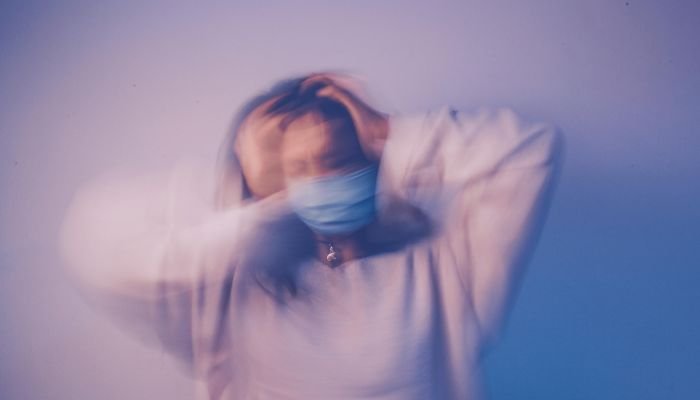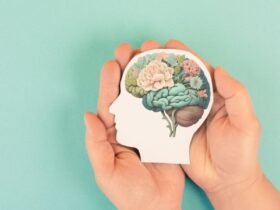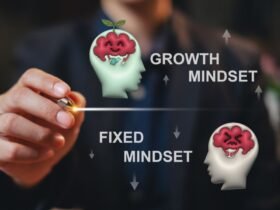When it comes to health, we often think of heart disease, diabetes, or weight issues. But your mood, stress levels, and even anxiety are just as deeply connected to what you eat. A growing field called nutritional psychiatry is proving that your brain and gut are more connected than you might imagine. If you’re struggling with anxiety or low energy, changing your diet might be one of the most powerful steps you can take.
This guide explains how food affects your mental health and how to start building an anti-anxiety diet that supports a calmer, more balanced mind.
The Food-Mood Connection
Your brain needs fuel to function, and that fuel comes from food. Just like a luxury car needs clean fuel to run smoothly, your brain works best when it gets high-quality nutrients. When you feed it junk, processed sugar, and empty calories, the effects are not only physical they show up emotionally and mentally too.
Foods rich in vitamins, minerals, and antioxidants protect your brain from harmful stressors like inflammation and free radicals. These are unstable molecules that damage cells and are linked to anxiety, depression, and memory loss.
Also read How Drinking Coffee May Decrease Your Risk of Kidney Stones
But it’s not just about what you eat. It’s also about what’s living in your gut.
How Gut Health Influences Anxiety
Surprisingly, 95% of your body’s serotonin the “feel good” brain chemical is actually made in your gut, not your brain. This makes your digestive system a major player in how you feel emotionally. Serotonin helps regulate mood, sleep, and appetite, and low levels are closely tied to anxiety and depression.
So, how is serotonin made? With help from your gut bacteria.
Your digestive system is home to trillions of bacteria, and the balance between good and bad bacteria has a huge impact on your mood. These good bacteria:
- Help you absorb nutrients from food
- Support serotonin production
- Line your gut to block toxins and bad bacteria
- Reduce inflammation, which is a known contributor to anxiety
When your gut is healthy, this system works smoothly. But when your gut is inflamed due to poor diet, it sends stress signals to your brain, and that’s when anxiety, mood swings, and fatigue can show up.
Foods That Fight Anxiety
Shifting to an anti-anxiety diet doesn’t require extreme changes. It’s about focusing on foods that reduce inflammation and support healthy brain function.
Also read 4 Worst Foods for Liver Health You Should Stop Eating Now
Here are some of the best anti-anxiety foods to include in your daily meals:
1. Leafy Greens
Spinach, kale, and Swiss chard are rich in magnesium, which plays a direct role in calming the nervous system.
2. Fatty Fish
Salmon, sardines, and mackerel are packed with omega-3 fatty acids that reduce inflammation and support serotonin levels.
3. Whole Grains
Oats, brown rice, and quinoa stabilize blood sugar and help regulate mood.
4. Yogurt and Fermented Foods
Greek yogurt, kefir, sauerkraut, and kimchi promote healthy gut bacteria.
5. Berries and Citrus
Blueberries, oranges, and strawberries are rich in antioxidants that protect brain cells and fight oxidative stress.
6. Nuts and Seeds
Almonds, walnuts, flaxseeds, and pumpkin seeds provide healthy fats and magnesium.
7. Herbal Teas
Chamomile, lemon balm, and green tea contain calming compounds that ease stress.
Foods That Trigger Anxiety
To support your mental wellness, limit these inflammation-causing foods as much as possible:
- Sugary drinks and energy drinks
- Refined carbs like white bread and pastries
- Processed meats like sausages or hot dogs
- Fried foods and fast food
- High-fat dairy and cheese
- Candy and artificial sweeteners
These foods disrupt gut health, trigger inflammation, and interfere with mood-regulating hormones.
You don’t have to live with constant anxiety. Sometimes, the first step toward a calmer mind is on your plate. An anti-anxiety diet focuses on whole, nutrient-rich foods that nourish both your body and your brain. By feeding your gut the right way, you can reduce inflammation, support serotonin production, and build better mental resilience day by day.
Even small changes in your daily diet can lead to a noticeable shift in how you feel. Start with one or two food swaps, build a routine, and let your meals become part of your mental health support system.
❓FAQs
Foods rich in magnesium, omega-3 fatty acids, antioxidants, and probiotics are ideal for reducing anxiety. Top choices include leafy greens, fatty fish, yogurt, berries, whole grains, and nuts.
Yes, studies in nutritional psychiatry show that diet can significantly affect mood and anxiety. A balanced diet with anti-inflammatory foods supports better gut health, which is closely linked to brain function and emotional balance.
Try to limit or avoid processed foods, sugary snacks, caffeine, alcohol, and artificial sweeteners. These can increase inflammation and disrupt neurotransmitter activity, worsening anxiety symptoms.
Your gut produces about 95% of your serotonin, the neurotransmitter responsible for mood regulation. Healthy gut bacteria improve serotonin production and reduce inflammation, both of which help manage anxiety.
Many people begin to notice changes in mood, energy, and sleep within 2 to 4 weeks of consistent dietary changes. However, individual results vary based on overall health, lifestyle, and the severity of symptoms.















Leave a Reply
View Comments